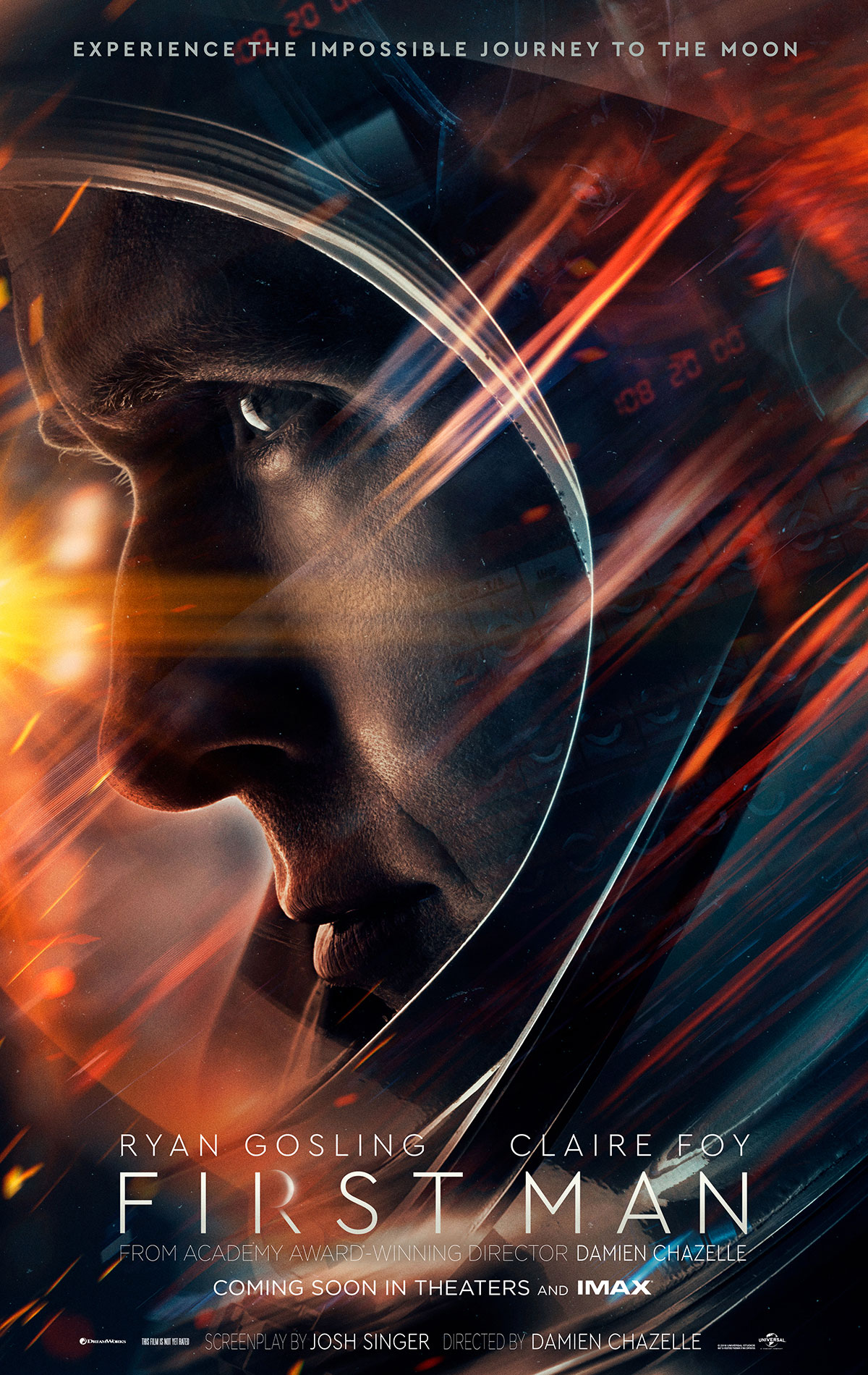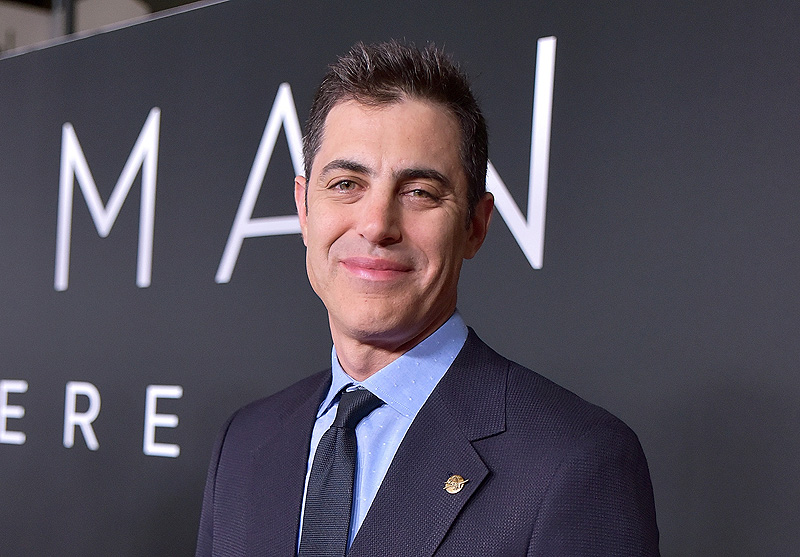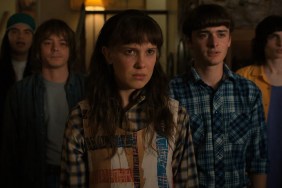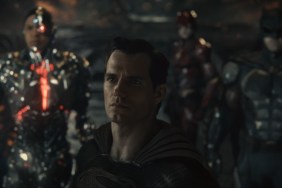Universal Pictures provided ComingSoon.net with the chance to have an exclusive 1:1 with Oscar-winning First Man screenwriter Josh Singer (Spotlight, The Post), who talks to us about the compelling Neil Armstrong biopic starring Ryan Gosling. Check out the interview below!
Director Damien Chazelle (Whiplash) and Gosling (Blade Runner 2049) are teaming up again following the smashing success of the 2016 musical La La Land for the film based on James Hansen’s biography “First Man: A Life Of Neil A. Armstrong.” Written by Academy Award winner Josh Singer (Spotlight), the First Man movie will be produced by Wyck Godfrey & Marty Bowen (The Twilight Saga, The Fault in Our Stars) through their Temple Hill Entertainment banner, alongside Chazelle. Isaac Klausner (The Fault in Our Stars) will executive produce.
The film features an ensemble cast that includes Gosling, Foy as Janet Shearon, Armstrong’s first wife, Corey Stoll (The Strain) as Buzz Aldrin, Kyle Chandler (Game Night) as Deke Slayton, Jason Clarke (Dawn of the Planet of the Apes) as Ed White, Shea Wigham (Kong: Skull Island) as Gus Grissom, Jon Bernthal (The Punisher) as David Scott, Brian d’Arcy James (13 Reasons Why) as Joseph A. Walker, Pablo Schreiber (Den of Thieves) as Jim Lovell, as well as Patrick Fugit (Outcast), Cory Michael Smith (Gotham), Lukas Haas (The Revenant) and Christopher Abbott (The Sinner).
First Man is set to land in theaters on October 12.
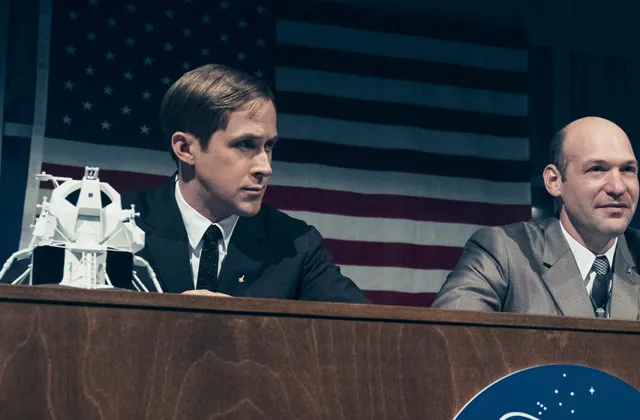
ComingSoon.net: How do you feel about how the movie’s been received so far?
Josh Singer: I feel like, I’m proud of the work and I feel like Damien just did ridiculous work, as did Ryan and Claire. And I think it’s a movie that not only is quite powerful, but it’s one that on a second and third and fourth watching just has so many different facets and layers that is something I’m very proud to be associated with.
CS: Claire’s Janet plays such a crucial role in the film because Neil himself is so stoic and reserved that a lot of times you feel like she’s reflecting and speaking for what he’s undoubtedly going through emotionally. Can you talk a little bit about her being an emotional conduit for him as well as for her own experience?
Singer: Yeah, no, it was a huge challenge for us. Neil’s an emotionally tightly packaged guy, so we really wanted to get it right and get Neil right. You’re working within a pretty limited scope in terms of that emotional range, and while Ryan did so much with so little, there’s still the challenge of you’re not going to see an emotional outburst in this guy. It just wasn’t him. After I’d wrote a couple of them I got slapped down by Dave Scott and Jim Hansen and just given who we were dealing with, I just knew we were going to be limited, right? Again, I knew Ryan would give a ton, but I knew we were going to be somewhat limited in terms of what kind of range we could give Neil. And the answer was just to go to Janet. You’re constrained there, too, in terms of her role, but you’re not that constrained because Janet was such a strong individual and because I think the role of an astronaut’s wife was a full-time job, holding everything together, being in the public eye. I think Janet handled it with such aplomb and really could be an emotional anchor for us. You’re just thrilled when you get to have Claire Foy come in and play that role because she’s someone who, like Ryan, can do so much with so little, right? Her eyes are so expressive. One of my favorite moments is when Neil sort of slams the door when he’s talking after Gemini 8 and this is a real story. He was very unhappy with how “Life” wanted to cover Gemini 8. It’s when Neil’s truly out of sorts, and he slams the door and there’s a reaction where Claire reacts to the door slam, and then literally a split second later covers it up and tells Rick, “Yeah, it’s okay.” You know, and to me, in some ways, that moment, she sums up so much about what the role of an astronaut’s wife was. And so, he does one of those things where you write that and you hope that the actors can convey so much without dialogue, with actions, with looks. I think they just both did tremendous jobs, but there’s no question we were very cognizant of the idea that Janet, was going to be the emotional anchor for the movie because of all the limitations with the character of Neil.
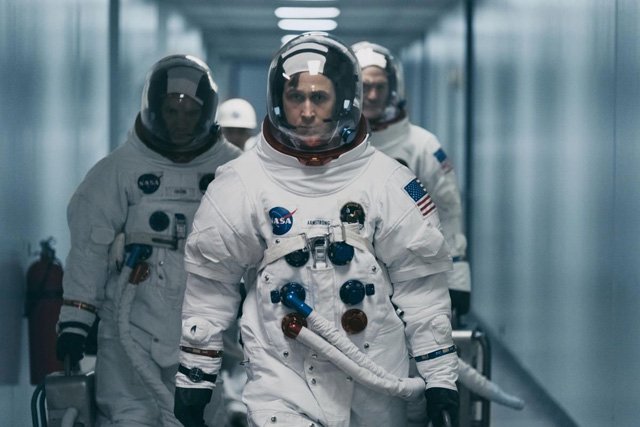
CS: The big emotional pinpoint for Neil is the through line about Karen’s bracelet. Was that an invention or is that something you actually found in your research?
Singer: It’s conjecture, but it’s not mine. So Jim Hansen, who spent 50 hours interviewing Neil and years and years working with him, he got to the end of all his research and essentially came to the conclusion that he thought Neil might’ve left something up there on the moon. And look, it’s not unusual. Charlie Duke left a photo of his family on the moon. So the idea of leaving a memento on the moon was not unusual. Jim thought maybe Neil had done this. He asked Neil for the manifest for his personal property kit, his personal preference kit, where he would’ve kept something like that, and Neil claims to have lost it, which is very un-Neil. Then Jim went to Neil’s sister June Hoffman, who knew Neil as well as just about anybody in the world and said, “Do you think that Neil might’ve left something of Janet’s on the moon?” And June said, “Oh, I dearly hope so.” So we chose to focus on this moment. And by the way, the moment Neil wanders off, which is what we drive it by, that was an unscripted moment. That was not on the mission to-do list. They had a ton of things to do during their time on the moon, collecting rock samples, setting up experiments, the Nixon call. There was a lot that was planned. That was unplanned, that he wandered off to the go to the west crater. Nobody quite knows what he was thinking about or what he did. Jim’s conjecture was that maybe he left something. I thought, well, if it’s good enough for Jim and it’s good enough for June, Neil’s sister, it’s certainly good enough or me.
CS: Maybe eight or nine years ago I had the chance to interview a bunch of the Apollo astronauts for a documentary. It was Buzz Aldrin, Michael Collins, all those guys were there. At one point Buzz pointed to a flip phone I had at the time and he said, “There’s more technology in that phone than there was in the lunar module.” Can you talk a little bit about that, because what the movie is really great at is portraying just how rickety and not super streamlined a lot of this equipment was?
Singer: Yeah, I mean, we were very committed from the very outset. It was one of the first things he had said that he was trying to give a sense of how visceral, challenging and terrifying these flights were, how claustrophobic they were. I think one of the things people remarked upon is the whole movie is shot very much in close-up. It’s very much claustrophobic on purpose until you get to the moon. We’re trying to convey a claustrophobia, both being in those cockpits and also living this life where you’ve got death nipping at your heels at every turn. I think that claustrophobia is key, but also there’s so little separating you from the elements. It’s not made out of the strongest stuff in the world. And so, it is very low-tech, right, in that it was all the technology we had at the time. Now that said, they did have computers. Those computers just were on the ground instead of on the module, right? I think that there has been a bit of a myth about how easy this was and sugarcoated. We really wanted to puncture that myth and get at the challenge, because I think in some ways that’s a lot more inspiring when you realize, “Oh yeah, these things are within our grasp. We just have to sacrifice greatly.” As opposed to, “No, no, no, those were super heroes and they had some special sauce that enabled them to get there.”
CS: In the movie “Tropic Thunder” one of the jokes was that Robert Downey Jr.’s character had played Neil Armstrong. That character was an Oscar-chasing actor and he’d won all these awards. As a guy who’s written not just this, but several big biopics -some of which have won Oscars- how do you focus more on telling the story the way it needs to be told as opposed to telling the story in a way that’s sexy for awards season?
Singer: That’s funny. I don’t know what’s sexy for awards season. One might argue that doing a great man’s history in this day and age is not so sexy for awards season. But I’m drawn to the story of Neil Armstrong because he’s not necessarily a great man of history, he’s more of an ordinary man who sacrifices greatly in order to achieve and it’s fresh. I’m drawn to stories that tell us things we don’t already know, right? Like, yeah, sure, we know he got to the moon, but I don’t really believe we know how he got to the moon, certainly not how Neil Armstrong got to the moon. I think that’s a really interesting story, in the same way as, yeah, sure, we knew that the Catholic Church sandal was exposed by “The Boston Globe” in early 2002. How they got that story, the fact that it was four Catholic reporters, you know, that actually did the reporting based on the suggestion of a Jewish editor-in-chief, that to me is fascinating. I guess in my heart of hearts what I really am is an amateur historian. I love looking back at history and seeing how that’s relevant to today. I’m less interested in awards and more interested in provoking thought about where we are. So why is this story relevant to today? Again, as I said, I think the fact that you need to sacrifice to achieve, that it’s got to be about what you’re going to do for your country, not what the country’s going to do for you. To me, those are lessons that resonate with me today. The fact that this is a leader who wasn’t talking a ton, who wasn’t all about words, but was about actions, that feels like something we are in need of today. If it happens to be an awards movie, so be it.
(Photo Credit: Getty Images)
First Man
-
First Man

-
First Man

-
First Man

-
First Man

-
First Man

-
First Man
